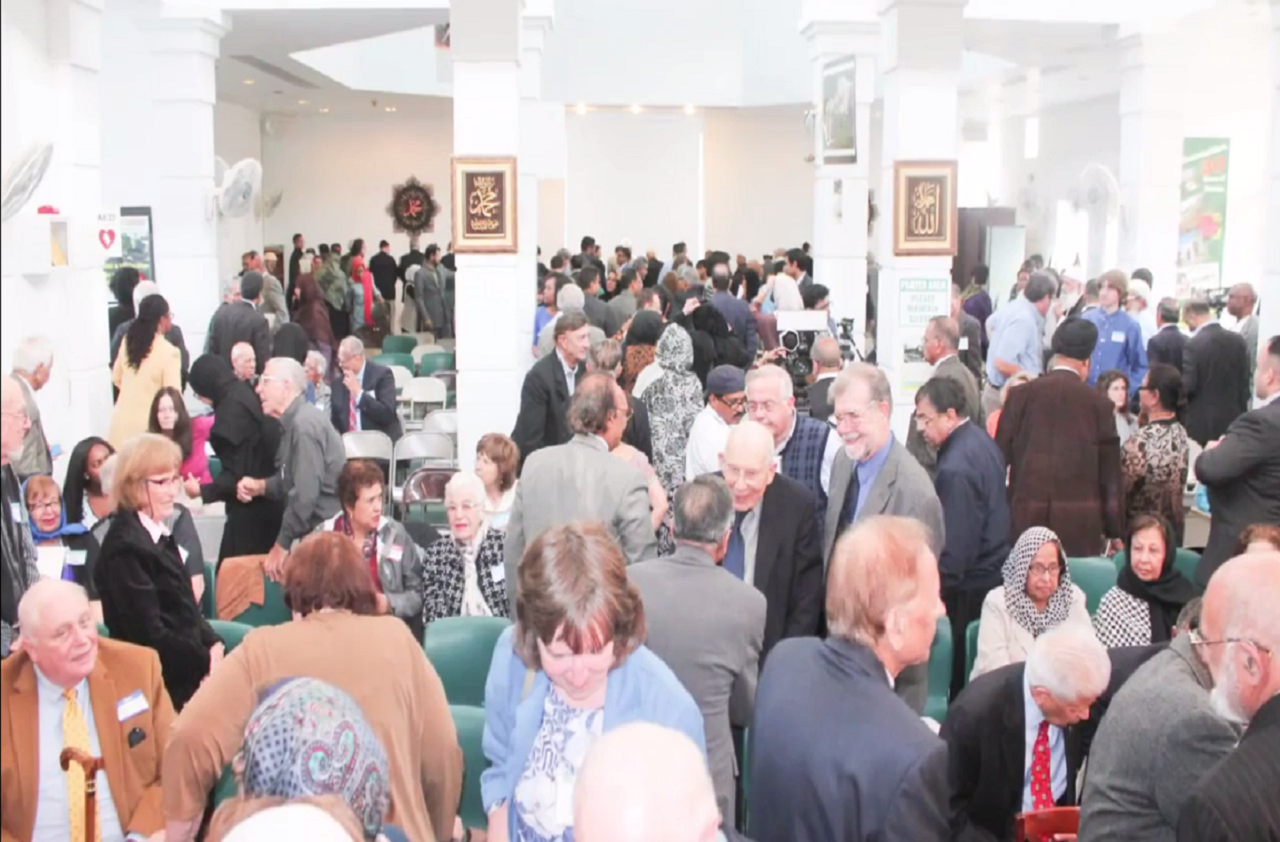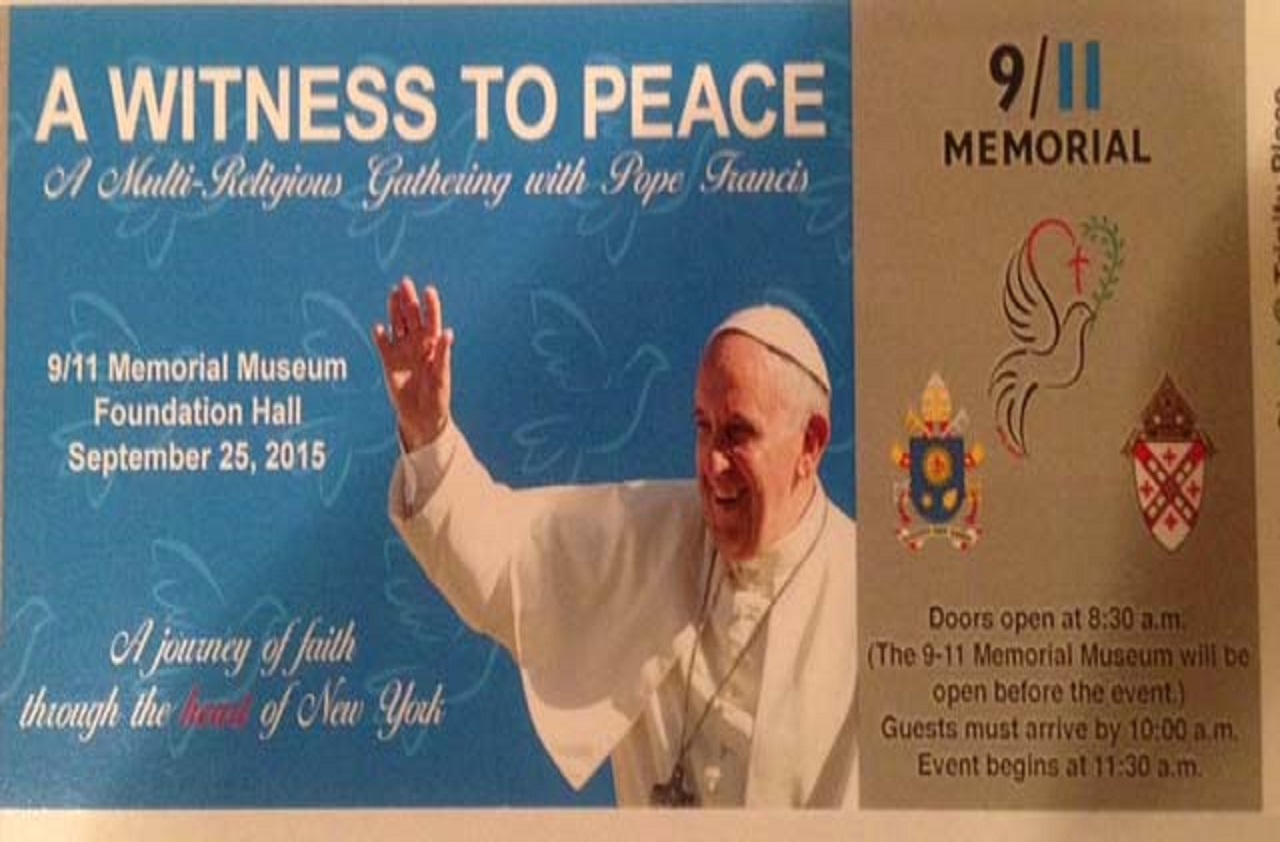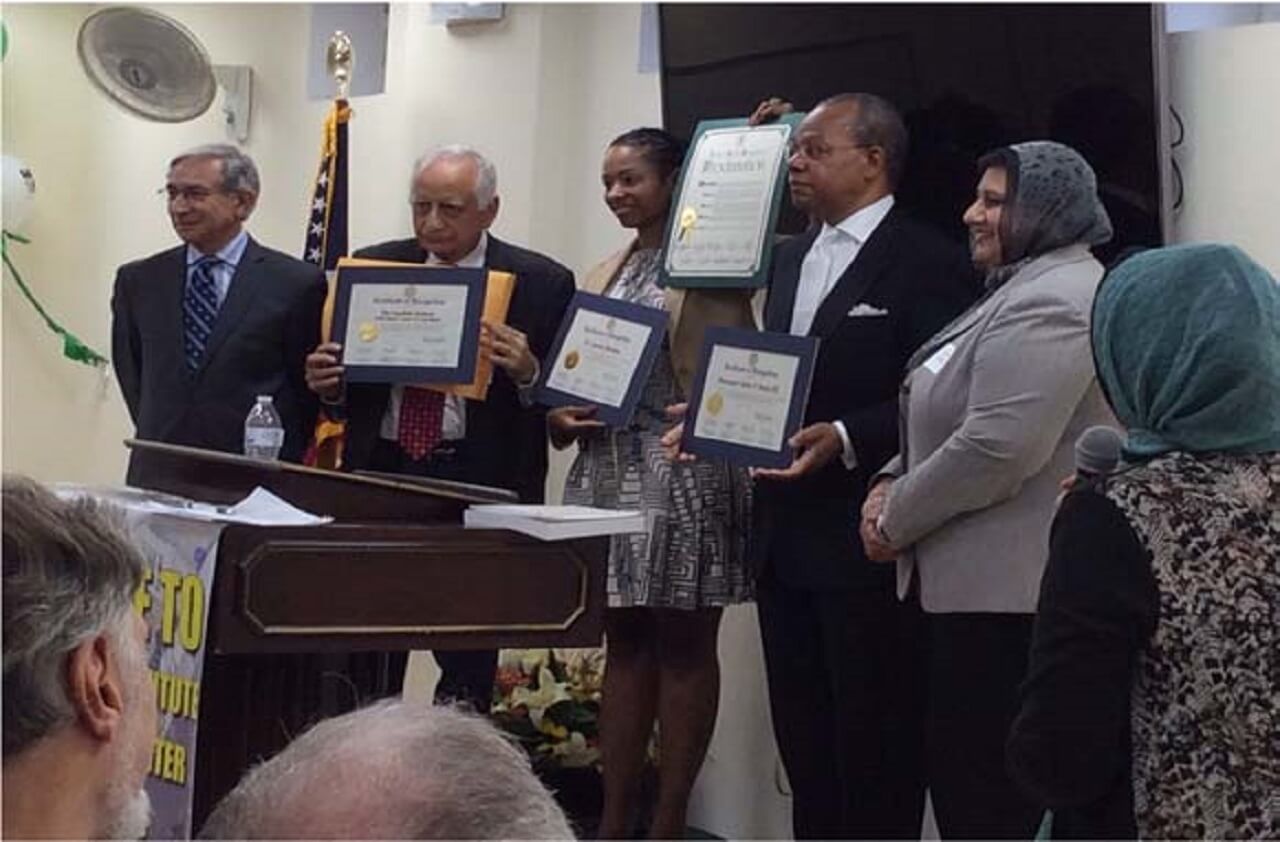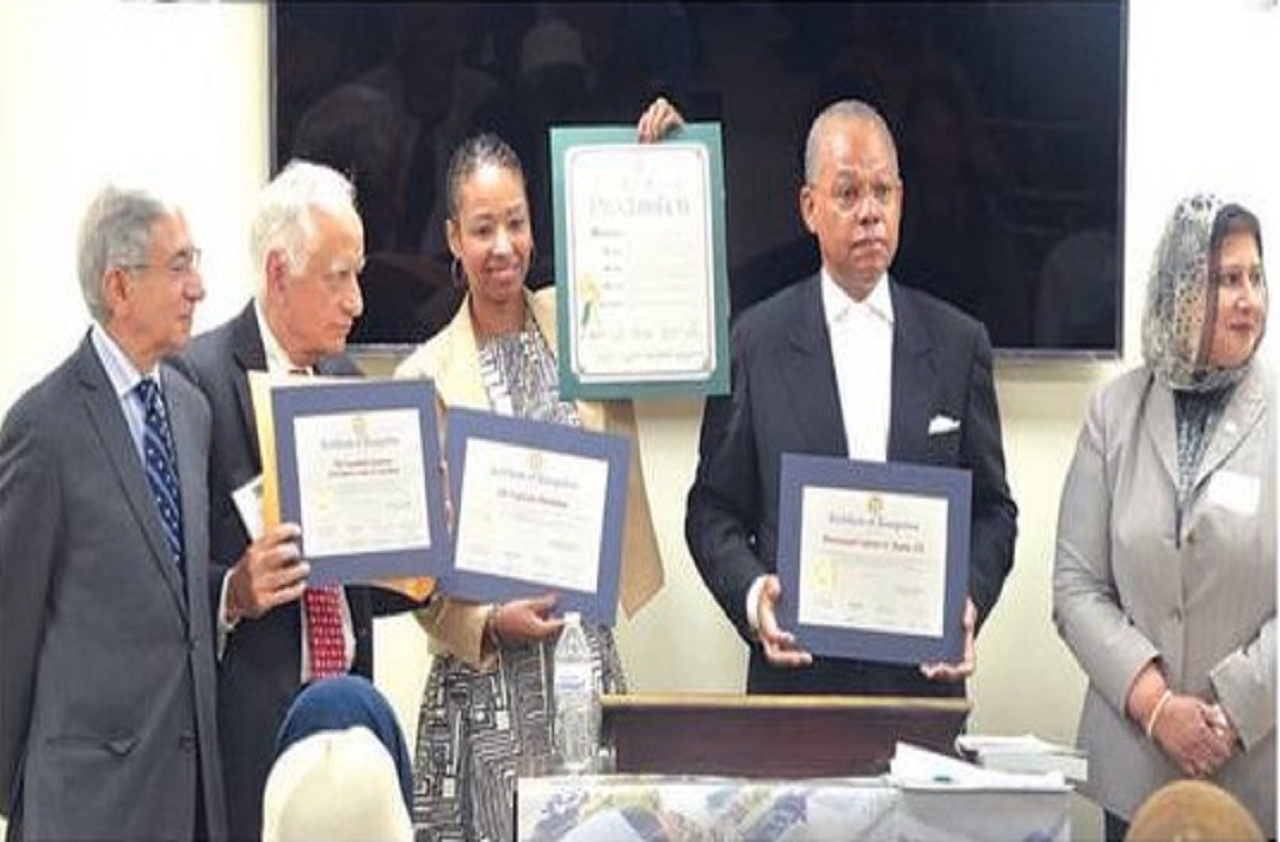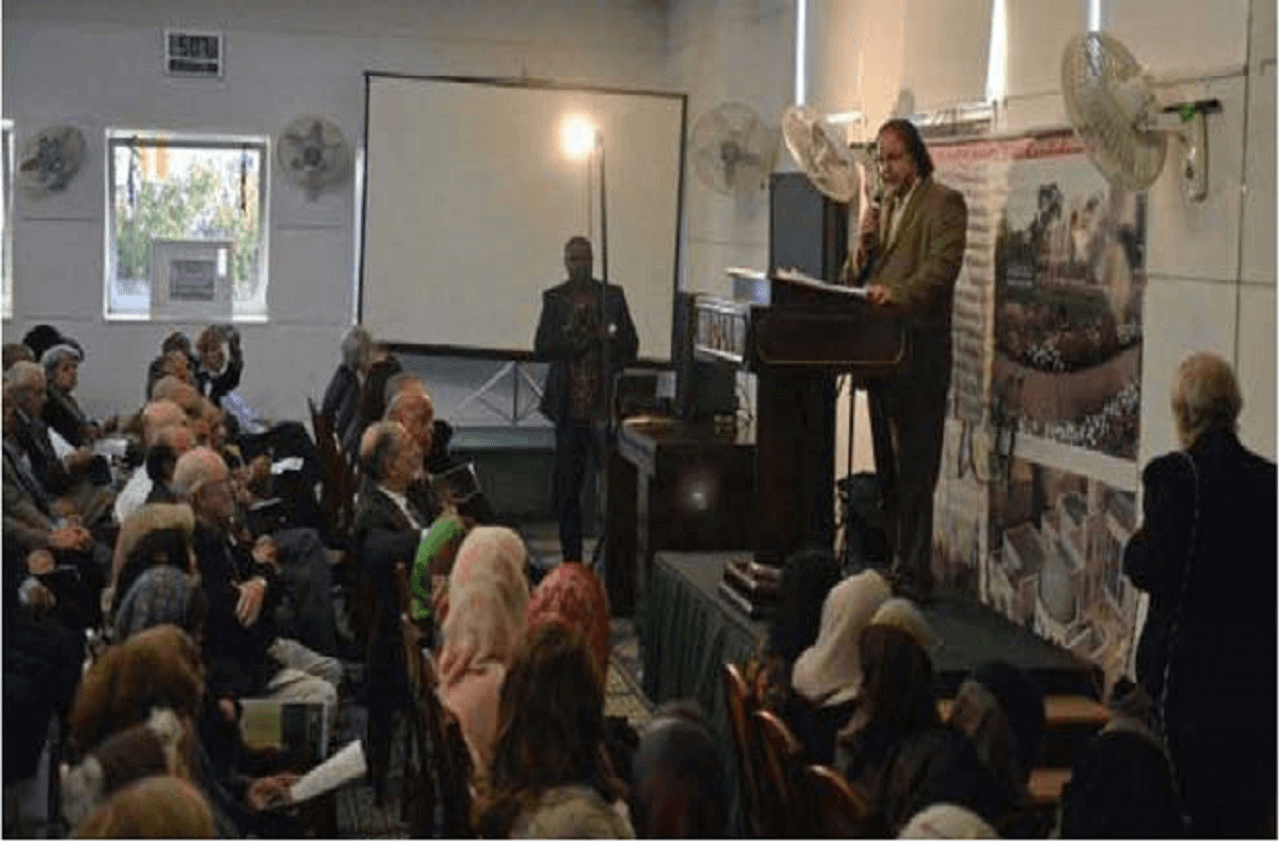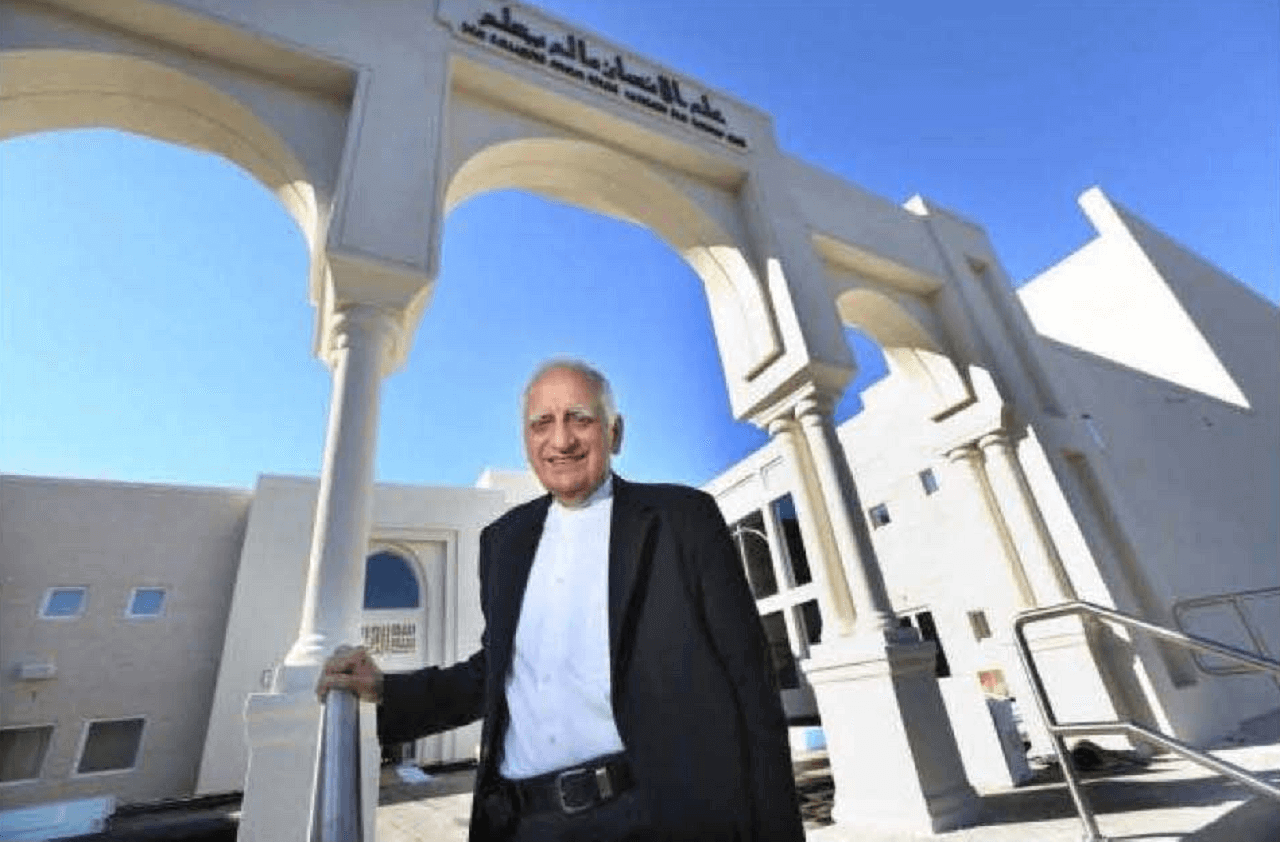Peaceful Coexistence - Jewish and Muslim in Iberia Peninsula (Golden Age of Jewish Culture) By Sohail Nabi
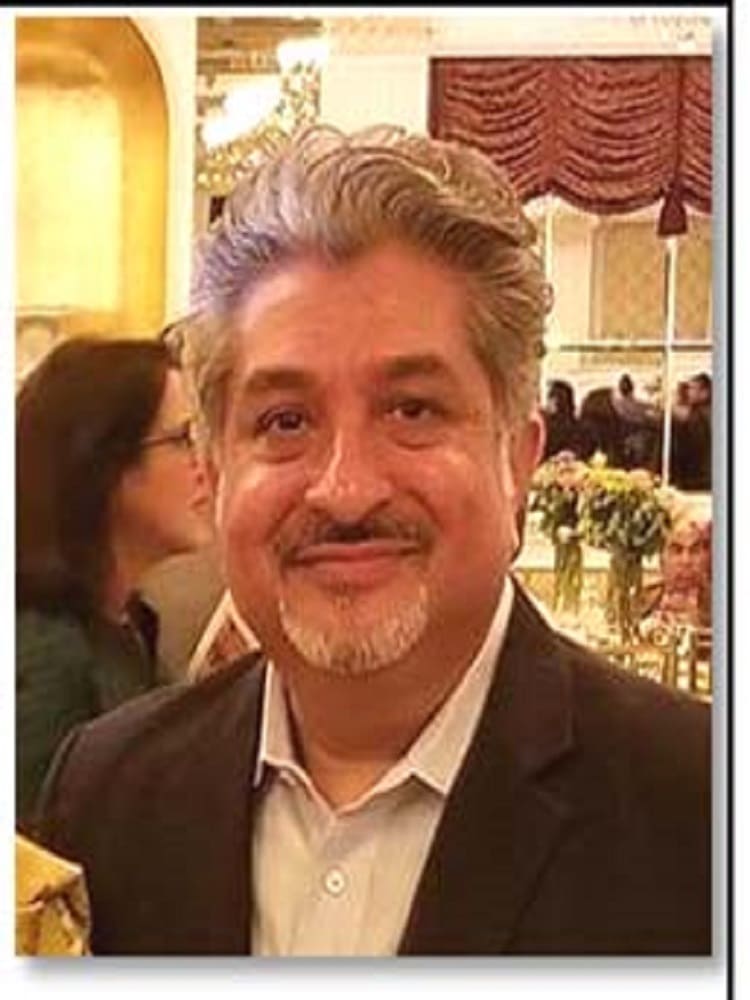 After the death of Prophet Muhammad in 632 C.E., Islam spread rapidly from Makkah to much of northern Africa.
In 711 C.E., the recently-converted Muslim Berbers, who inhabited the regions of Morocco and Algeria,
crossed The Strait of Gibraltar and conquered the Iberian Peninsula.
After the death of Prophet Muhammad in 632 C.E., Islam spread rapidly from Makkah to much of northern Africa.
In 711 C.E., the recently-converted Muslim Berbers, who inhabited the regions of Morocco and Algeria,
crossed The Strait of Gibraltar and conquered the Iberian Peninsula.
The invasion of the Iberian Peninsula, today modern Spain and Portugal, marks the first time that Islam had
reached the European continent. Muslim forces were in power in the peninsula for over 700 years, and much of
that time was nonviolent and peaceful. The coexistence of Muslims, Jews and Christians in the Iberian Peninsula was the longest period in history in which the three groups lived together in relative peace. The cause most often
stated for the nonviolent coexistence is traced by many to the Qur’anic law which states people of Abrahamic
faiths should be shown tolerance. The Holy Quran makes it clear, leaving no room for any doubt that the Muslims
have to regard the Torah, Psalms and the Gospel as book of God revealed to the prophets Moses, David and Jesus
respectively and should believe in these and in all books of God without any exception. The Holy Quran refers
repeatedly to the previous scriptures, Torah and the Gospels, and claims to confirm and clarify the messages delivered
through earlier prophets, and to correct misinterpretations of those messages made by the followers of the
prophets who delivered them. The monotheistic religion, therefore, was accurately revealed before, the Qur’an affirms, but those communities
who received messages prior to the time of Muhammad became “doubtful and disconcerted” (Quran 42: 13) about it. The Prophet Muhammad
(pbuh) did not bring a new religion but came to reestablish and confirm the prototype of Abraham religion, monotheism.
They say: “Become Jews or Christians if ye would be guided (to salvation).” Say thou: “Nay! (I would rather) the religion of
Abraham, the true and he joined not gods with Allah.” Say ye: “We believe in Allah and the revelation given to us and to Abraham,
Isma`il, Isaac, Jacob and the Tribes and that given to Moses and Jesus and that given to (all) Prophets from their Lord we
make no difference between one and another of them and we bow to Allah (Qur’an 2: 135-136 ).
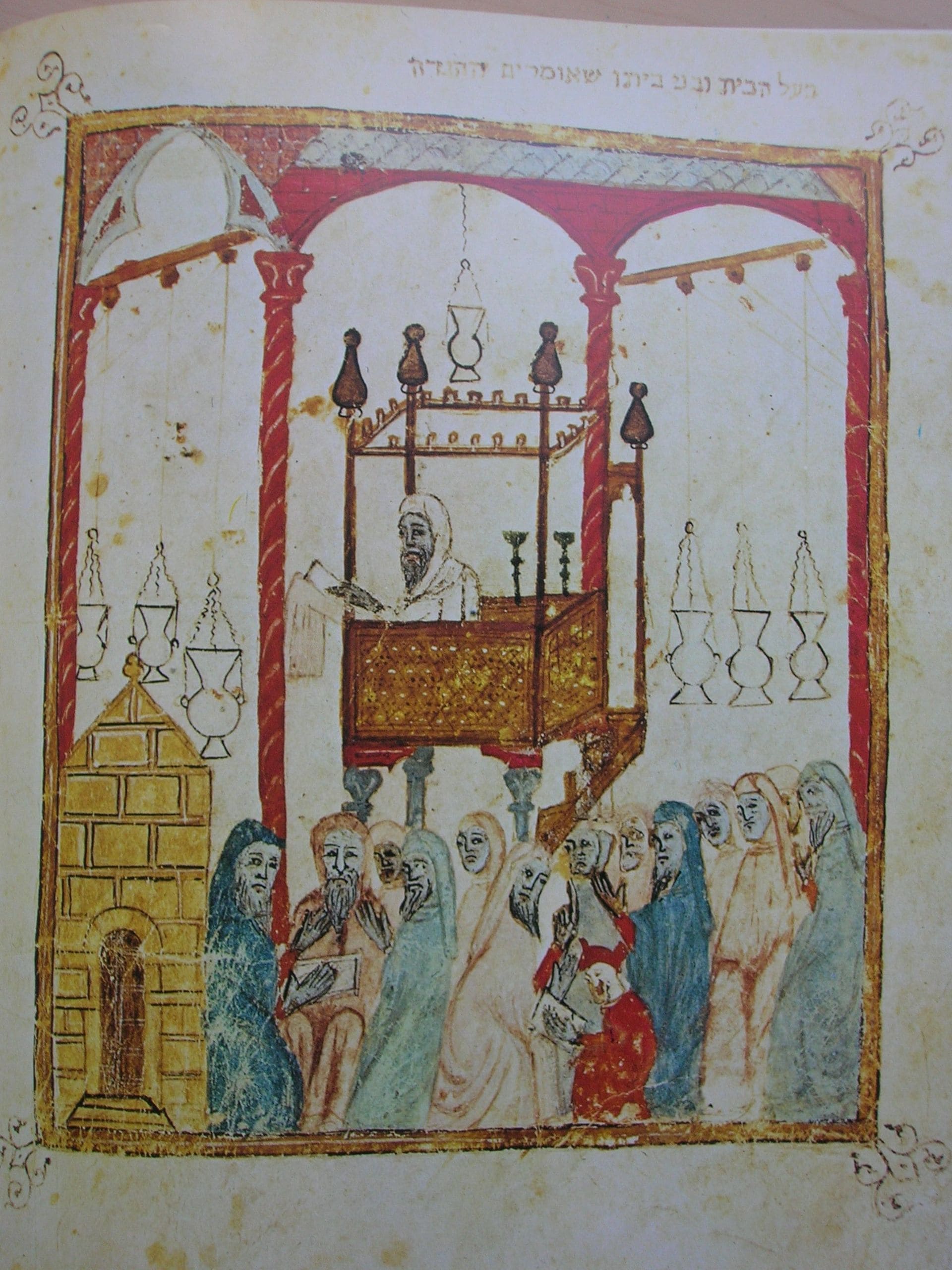
Before the invasion of the Iberian Peninsula by the Berbers, the Visigoths were in
power in the region from 586 C.E. to 713 C.E. Under the Visigoths, who were primarily
Catholic, Jews were subject to anti-Semitic laws aimed at eradicating them.
They were barred from holding public office, or holding power over Christians.
These laws crippled the Jews economically, forcing Jewish communities into poverty.
The level of religious tolerance in Iberia was much higher under the Berbers than it
had been under the Visigoths. In fact, “Christians were largely unaffected by the
change of regime. And, as a result of the fears of the Muslim minority, their day-today
contact with Islam was restricted”. The Berbers were able to conquer the Visigothic
Iberian Peninsula “not entirely, or even principally, by a function of their military
prowess, rather, it was a product of their willingness to offer remarkably favorable
terms of surrender to the towns and local lords they encountered”.
The small number of Muslims in the Iberian Peninsula also meant that the recent
invaders were susceptible to the influence of surrounding cultures. “The Muslims
remained a minority in their empire for some centuries, vulnerable to the appeal of
these sophisticated cultures and the danger that the distinctiveness of the ummah and
the religion founded in Madinah would dissolve through assimilation” (Safran 579).
Perhaps, in part due to the isolation between conqueror and the conquered, Jews were
not nearly as restricted after the invasion of the Berbers as they had been during the
Visigothic era. They were able to practice their religion freely, without legal restriction,
since “Islamic law allowed most conquered peoples to retain their religion.
These non-Muslim groups–Primarily Christians, Jews and Zoroastrians–existed in
fairly closed communities. Each religious community had its own structure of authority”
(Coope 48). Along with Christians, they had to pay a Jizya (a tax on nonMuslims),
but they were free to practice Judaism. Since Judaism is an Abrahamic
religion, Jews were given religious freedom. “Islamic doctrine distinguishes first between Muslim and non-Muslim peoples and second between those non-Muslims who are, like Muslims themselves, ‘Peoples of the Book’ (that is, Christians and Jews) and those non-Muslims who
are ‘pagan’” (Shell 306). These monotheistic ‘People of the Book’ were given the right to practice their religion.
In the Islamic Iberian Peninsula, Jews reached a level of equality that they had never been able to attain under the Visigoths. “By at least the
ninth century, Christians and Jews were regularly employed by the Emirs as tax collectors, ministers, and even bodyguards” (Wolf 287). Jews
were able to hold offices in the government and govern themselves in their own communities. They also had much more cultural freedom and
social mobility under the Muslims than they had under the Visigoths.
As Muslims controlled the government, and became more powerful in Iberia, they were able to elevate the people in their society. Increasingly,
non-Muslims were being drawn to the economic and social benefits of being a part of Islamic society. The Islamic law of tolerance toward
Abrahamic religions is often given as the primary cause of peace in Iberia. While it explains the Muslim tolerance of other religions, it does not explain why Jews or Christians tolerated the Muslims. Three factors can account for coexistence
between all three religions: the spread of Arabic literature, the cultural exchange facilitated
by intermarriage, and lastly, the establishment of the Caliphate in Córdoba. The first factor
contributing to cultural exchange was the spread of Arabic literature. The blending of culture
led to most non-Muslims on the peninsula speaking Arabic as a second language, which
facilitated the spread of Muslim ideas and music. With the spread of the Arabic language,
came the spread of Arabic literature and ideas.
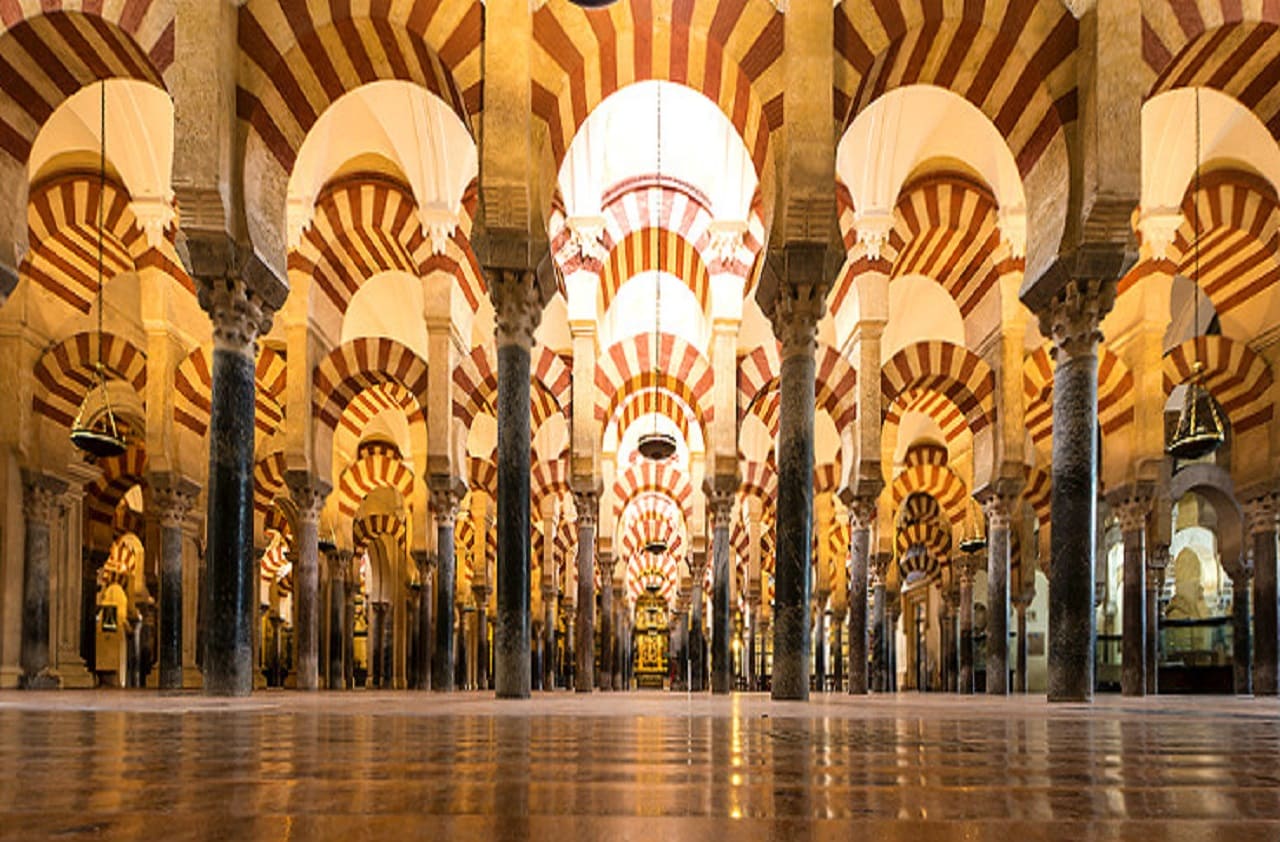
The coexistence of Muslims, Jews, and Christians during this time is revered by many writers.
Al-Andalus was a key center of Jewish life during the early Middle Ages, producing important
scholars and one of the most stable and wealthy Jewish communities and a relatively
educated society for the Muslim occupiers and their Jewish collaborators, as well as some
Christians who openly collaborated with the Muslims and Jews. As Sefarad, al-Andalus was
the "capital" of world Judaism. María Rosa Menocal, a specialist in Iberian literature at Yale
University, claims that "tolerance was an inherent aspect of Andalusian society". Menocal's
2003 book, The Ornament of the World, argues that the Jewish dhimmis living under the Caliphate,
while allowed fewer rights than Muslims, were still better off than in the Christian parts
of Europe. Jews from other parts of Europe made their way to al-Andalus, where in parallel to Christian sects regarded as heretical by Catholic
Europe, they were not just tolerated, but where opportunities to practise faith and trades were open without restriction save for the prohibitions
on proselytization and, sometimes, on synagogue construction.
Especially after 912, during the reign of Abd-ar-Rahman III and his son, Al-Hakam II, the Jews prospered culturally, and some notable figures
held high posts in the Caliphate of Cordoba. Jewish philosophers, mathematicians, astronomers, poets, and rabbinical scholars composed
highly rich cultural and scientific work. Many devoted themselves to the study of the sciences and philosophy, composing many of the most
valuable texts of Jewish Philosophy. Jews took part in the overall prosperity of Muslim Al-Andalus. Jewish economic expansion was unparalleled.
In Toledo after the Christian reconquest in 1085, Jews were involved in translating Arabic texts to the romance languages in the socalled
Toledo School of Translators, as they had been previously in translating Greek
and Hebrew texts into Arabic. Jews also contributed
to botany, geography, medicine, mathematics, poetry and philosophy.
'Abd al-Rahman's court physician and minister was Hasdai ibn Shaprut, the patron
of Menahem ben Saruq, Dunash ben Labrat, and other Jewish scholars and poets. In
following centuries, Jewish thought flourished under famous figures such as Samuel
Ha-Nagid, Moses ibn Ezra, Solomon ibn Gabirol and Judah Halevi. During 'Abd alRahman's
term of power, the scholar Moses ben Enoch was appointed
rabbi of Córdoba, and as a consequence al-Andalus became the center
of Talmudic study, and Córdoba the meeting-place of Jewish savants.
Much of the scholarship on the Islamic Iberian Peninsula can be divided into two main
viewpoints, essentially the former agrees that Islamic Iberia was peaceful, the latter
contests that idea. Peaceful coexistence or Convivencia has “been used to describe the
tripartite society of medieval Iberia ever since it was introduced by the great Spanish
philologist and historian.
The initial display of tolerance and nonviolence by the conquering Muslims in the Iberian
Peninsula was the catalyst for the cultural exchange that led to lasting peace in the region. Whether not using violence to conquer Iberia
was a tactical decision due of their low numbers, or an expression of their obedience to the mandates of the Qur’an, the Muslim invaders
showed religious tolerance to Jews and Christians. The largest contributing factor to the long standing peace was the cultural exchanges that
occurred in the region. The adoption of the Arabic language and Muslim dress along with intermarriage and an exchange of ideas resulted in
peace in Iberia.
Muslim Spain furnishes one of the most excellent examples of peaceful co-existence of various cultures and religions. It sets example for
contemporary Muslims how to live peacefully with non-Muslims. For seven centuries the Muslims held Spain, and the beneficence of their
rule, in spite, of intestine quarrels and dynastic disputes, is testified to and acknowledged even by their opponents. On their arrival on the soil
of Spain, the Saracens published an edict assuring to the subject races, without any difference of race, or creed, the most ample liberty. Suevi,
Goth, Vandal, Romans, and Jews were placed on an equal footing with the Muslims .They guaranteed to both Christians and Jews, the full
exercise of their religions, the free uses of their places of worship, and perfect security of person and property. The high culture attained by
Spanish Arabs has been sometimes considered as due principally to frequent marriages between Muslims and Christians. This circumstance,
undoubtedly, exercised a great influence on the development of the Spanish Muslims and the growth of that wonderful civilization to which
modern Europe owes so much of its advance in the arts of peace.
Reference:
The Ornament of the World—How Muslims, Jews, and Christians Created A Culture of Tolerance in Medieval Spain -Author -Maria Rosa Menocal published
by Little Brown and Company 2002.
Peaceful Co-Existence of Various Cultures and Religions: An Islamic Perspective with Special Reference to Spain
By Abdul Majid on May 28, 2008 in Essay
The Islamic Iberian Peninsula: Cultural Fusion and Coexistence - Miguel A. Claxton III. Portland State University
The Islamic Iberian Peninsula: Cultural Fusion and Coexistence - Wikipedia
Golden age of Jewish culture in Spain - Wikipedia
Back To Events List
Check out our other events
LAUNCH OF INSTITUTE ON SUNDAY OCT 25TH 2015
This event attracted a large gathering, received extensive TV and print media coverage in Newsday, Long Island Press and Islamic Horizon magazine.
See full story
WITNESS TO PEACE
Earlier this year when we heard about the visit of Pope Francis we extended an invite for him to formally launch the interfaith institute at ICLI which he was unable to accommodate.
See full story
CONFERENCE AT UN SPONSORED BY OIC AND PAKISTAN EMBASSY
The presentation was very well received. We were able to share a short video from the Oct 25th launch of the interfaith institute of ICLI
See full story
Honored for promoting harmony through the hijab
When some countries began to ban the hijab of Muslim women and attack the Islamic dress code, Dr Larycia Hawkin, a Christian and former associate professor...
See full story
New LI Interfaith Institute at mosque opens to promote understanding
John Andrew Morrow speaks during interfaith event at the Islamic Center of Long Island in Westbury on Sunday 25, 2015. (Credit : Steven Sunshine)
See full story
LI mosque creates Interfaith Institute to educate about Islam.
Dr. Farooque Ahmed Khan is shown in front of the triple arches that lead into the newly constructed building that will house the Islamic Center of Long Island...
See full story
 After the death of Prophet Muhammad in 632 C.E., Islam spread rapidly from Makkah to much of northern Africa.
In 711 C.E., the recently-converted Muslim Berbers, who inhabited the regions of Morocco and Algeria,
crossed The Strait of Gibraltar and conquered the Iberian Peninsula.
After the death of Prophet Muhammad in 632 C.E., Islam spread rapidly from Makkah to much of northern Africa.
In 711 C.E., the recently-converted Muslim Berbers, who inhabited the regions of Morocco and Algeria,
crossed The Strait of Gibraltar and conquered the Iberian Peninsula. Before the invasion of the Iberian Peninsula by the Berbers, the Visigoths were in
power in the region from 586 C.E. to 713 C.E. Under the Visigoths, who were primarily
Catholic, Jews were subject to anti-Semitic laws aimed at eradicating them.
They were barred from holding public office, or holding power over Christians.
These laws crippled the Jews economically, forcing Jewish communities into poverty.
Before the invasion of the Iberian Peninsula by the Berbers, the Visigoths were in
power in the region from 586 C.E. to 713 C.E. Under the Visigoths, who were primarily
Catholic, Jews were subject to anti-Semitic laws aimed at eradicating them.
They were barred from holding public office, or holding power over Christians.
These laws crippled the Jews economically, forcing Jewish communities into poverty.
 The coexistence of Muslims, Jews, and Christians during this time is revered by many writers.
Al-Andalus was a key center of Jewish life during the early Middle Ages, producing important
scholars and one of the most stable and wealthy Jewish communities and a relatively
educated society for the Muslim occupiers and their Jewish collaborators, as well as some
Christians who openly collaborated with the Muslims and Jews. As Sefarad, al-Andalus was
the "capital" of world Judaism. María Rosa Menocal, a specialist in Iberian literature at Yale
University, claims that "tolerance was an inherent aspect of Andalusian society". Menocal's
2003 book, The Ornament of the World, argues that the Jewish dhimmis living under the Caliphate,
while allowed fewer rights than Muslims, were still better off than in the Christian parts
of Europe. Jews from other parts of Europe made their way to al-Andalus, where in parallel to Christian sects regarded as heretical by Catholic
Europe, they were not just tolerated, but where opportunities to practise faith and trades were open without restriction save for the prohibitions
on proselytization and, sometimes, on synagogue construction.
The coexistence of Muslims, Jews, and Christians during this time is revered by many writers.
Al-Andalus was a key center of Jewish life during the early Middle Ages, producing important
scholars and one of the most stable and wealthy Jewish communities and a relatively
educated society for the Muslim occupiers and their Jewish collaborators, as well as some
Christians who openly collaborated with the Muslims and Jews. As Sefarad, al-Andalus was
the "capital" of world Judaism. María Rosa Menocal, a specialist in Iberian literature at Yale
University, claims that "tolerance was an inherent aspect of Andalusian society". Menocal's
2003 book, The Ornament of the World, argues that the Jewish dhimmis living under the Caliphate,
while allowed fewer rights than Muslims, were still better off than in the Christian parts
of Europe. Jews from other parts of Europe made their way to al-Andalus, where in parallel to Christian sects regarded as heretical by Catholic
Europe, they were not just tolerated, but where opportunities to practise faith and trades were open without restriction save for the prohibitions
on proselytization and, sometimes, on synagogue construction. 